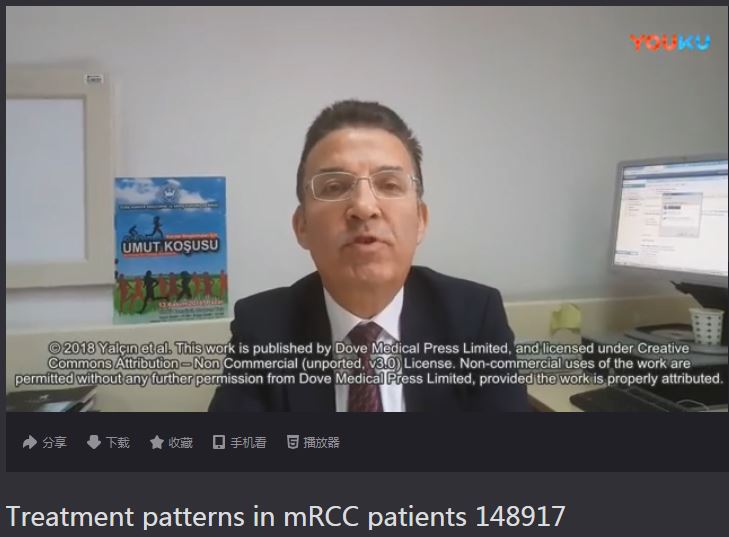9 0 6 7 6
论文已发表
注册即可获取德孚的最新动态
IF 收录期刊
- 2.6 Breast Cancer (Dove Med Press)
- 3.9 Clin Epidemiol
- 3.3 Cancer Manag Res
- 3.9 Infect Drug Resist
- 3.6 Clin Interv Aging
- 4.8 Drug Des Dev Ther
- 2.8 Int J Chronic Obstr
- 8.0 Int J Nanomed
- 2.3 Int J Women's Health
- 3.2 Neuropsych Dis Treat
- 4.0 OncoTargets Ther
- 2.2 Patient Prefer Adher
- 2.8 Ther Clin Risk Manag
- 2.7 J Pain Res
- 3.3 Diabet Metab Synd Ob
- 4.3 Psychol Res Behav Ma
- 3.4 Nat Sci Sleep
- 1.9 Pharmgenomics Pers Med
- 3.5 Risk Manag Healthc Policy
- 4.5 J Inflamm Res
- 2.3 Int J Gen Med
- 4.1 J Hepatocell Carcinoma
- 3.2 J Asthma Allergy
- 2.3 Clin Cosmet Investig Dermatol
- 3.3 J Multidiscip Healthc

A national, multicenter, non-interventional, observational study on treatment patterns in patients with metastatic renal cell carcinoma in Turkey – NOTES study
Authors Yalcin Ş, Yildiz R, Dane F, Karaoğlu A, Öksüzoğlu B, Özyilkan Ö, Sevinç A, Özdemir F, Turna H, Uslu R, Ulay E
Received 11 August 2017
Accepted for publication 16 December 2017
Published 5 March 2018 Volume 2018:11 Pages 1223—1228
DOI https://doi.org/10.2147/OTT.S148917
Checked for plagiarism Yes
Review by Single-blind
Peer reviewers approved by Dr Akshita Wason
Peer reviewer comments 3
Editor who approved publication: Dr Ingrid Espinoza
Introduction: The introduction of targeted therapies in renal cell carcinoma has
significantly improved its prognosis and treatment outcomes in recent years.
Such treatment options are targeted therapies of the vascular endothelial
growth factor (VEGF) pathway and the mammalian target of the rapamycin pathway.
With the use of tyrosine kinase inhibitors (TKIs) and mammalian target of the
rapamycin inhibitors, overall survival has increased up to 2 years. In Turkey,
due to applicable reimbursement conditions for patients with metastatic renal
cell carcinoma (mRCC), interferon use is mandated as a first-line treatment,
thus providing information on the use of everolimus only after initial
interferon and second-line VEGF-targeted treatments such as VEGF-TKI.
Patients and methods: To provide a first real-life data set in Turkey,
we conducted a prospective, non-interventional, observational study and
assessed the efficacy and safety of everolimus after two lines of treatment
including interferon. A total of 100 patients with histologically confirmed
mRCC were enrolled in the study from 11 centers between June 2012 and March
2014 (70 males and 30 females). Efficacy was assessed on the basis of
progression-free survival and overall survival; safety of everolimus was
assessed on the basis of adverse event occurrence.
Results: The study results showed that the median
progression-free survival with everolimus treatment was 8.1 months (95% CI:
5.1–11.1) and the median overall survival was 17.6 months (95% CI:
10.1–25.1), thus indicating a better overall response based on survival
durations than those from the randomized Phase III REnal Cell cancer treatment
with Oral RAD001 given Daily study results (4.9 and 14.8 months, respectively).
Conclusion: The study showed that everolimus treatment is a
safe and effective treatment option in the treatment of mRCC after VEGF-TKI,
with an acceptable safety and tolerability profile in real-life settings.
Keywords: metastatic
renal cell carcinoma, mTOR inhibitors, everolimus, observational study,
real-life setting, treatment patterns
摘要视频链接:Treatment patterns in
mRCC patients
